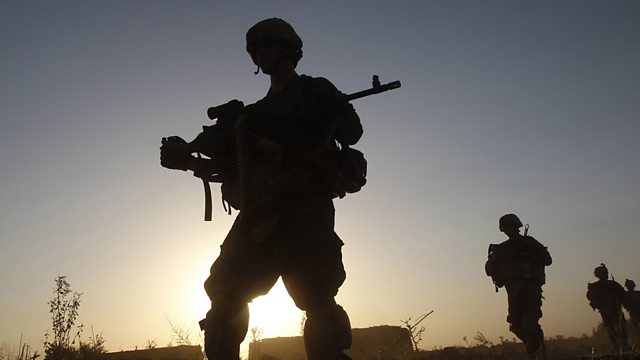What Nato leaves behind in Afghanistan
A correspondent's memories of foreign operations; the perils of power in Haiti; reviving the carob crop in Cyprus; awkward moments for the EU and Slovenia; Ireland's holy wells.
This week sees the end of the NATO mission in Afghanistan. These are the last days of a 20-year military presence of British and other forces – and the growing Taliban insurgency is moving quickly into the territory they’re leaving behind. The Βι¶ΉΤΌΕΔ's Security Correspondent Frank Gardner made numerous reporting trips to the country , four of them in a wheelchair; he reflects on some of the more poignant moments and what the future holds.
The killing of Haiti’s President Jovenel Moise has convulsed a nation all too accustomed to natural and political disaster. President Moïse had been ruling by decree after elections planned for 2019 didn’t happen - sparking mass protests and accusations that he illegally stayed on past his term. Amid the political chaos, in recent months many Haitian cities have also been facing a state of near-anarchy and escalating gang violence. David Adams met and interviewed the late President and weighs up the dangers and the appeal of power in the country.
Cyprus is assessing the damage of its worst forest fires in decades. It’s yet another place on earth challenged by the consequences of rising temperatures. Many of its farmers have already had to adapt to hotter, drier weather by changing what they grow. Some hope there might be a revival of the island’s neglected carob industry. Until the 1970’s carob exports were a major component of the economy. But as Charlotte Ashton found out, the crop and its products may not be to everybody’s taste.
One of the EU’s smallest member states took over the presidency of the European Council at the start of the month. Slovenia – a nation of just over two million people, formerly part of Yugoslavia - will perform the role until the end of the year. But the outspoken personality of its prime minister, Janez JanΕ΅a, has been causing some concern. The Βι¶ΉΤΌΕΔ's Balkans Correspondent Guy De Launey lives in Ljubljana and explains some of the awkwardness.
The landscape of Ireland is dotted with churches and shrines – but you don’t have to enter a building to connect with the spiritual. There are also around three thousand holy wells across the Republic where natural springs and streams have attracted pilgrims for centuries - both before and after the arrival of Christianity. In County Clare, there’s a particularly rich heritage of going to take the waters and make your prayers. Trish Flanagan has been to one such spot to explore the source of its power.
Producer: Polly Hope
Last on
More episodes
Previous
Broadcast
- Sat 10 Jul 2021 11:30Βι¶ΉΤΌΕΔ Radio 4 FM

